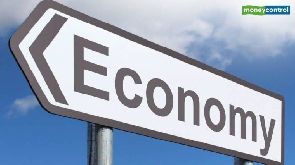The 2016 presidential candidate of the New Patriotic Party, Nana Addo Dankwa Akufo-Addo, says the growth of the national economy and the creation of the jobs will be the ‘twin goals’ of his government when, God-willing, he wins this year’s elections.
According to Nana Akufo-Addo, his government, should he wins this year’s elections, will put in place a “systematic, focused effort to restructure the Ghanaian economy – to take it out from just being a raw material producing economy, to an economy that is based on value addition, industrial activity and wealth creation.”
If this is not pursued, the NPP flagbearer explained that “we will continue to languish in the circumstances we find ourselves in today.”
Nana Akufo-Addo made this known on Monday, October 31, 2016, when he interacted with the leadership of the Trades Union Congress, to outline the NPP’s policies and programmes aimed at solving the many problems confronting the nation.
With Ghana’s 2016 growth rate projected to be the lowest in 22 years, the NPP flagbearer esplained that it is of the utmost importance for Ghanaians to “try a new path, a new programme and a new direction”.
He explained that if Ghanaians are to prosper, and Ghanaian workers to have a decent living standard, it “can only come about from the rapid growth and expansion of our economy. We are not going to generate higher living standards with our economy as it is now. We need to expand it and grow it.”
He noted that if the NPP’s proposals are to succeed, it is “your co-operation with our government and with the private sector, it is the sense of enterprise, innovation of Ghanaian private sector operators, which will spur us to that rapid growth.”
Nana Akufo-Addo continued, “the co-operation with between government, labour and private sector is at the heart of any successful economic policy that we will promote. We are not just talking about the normal tripartite committees to set out a minimum wage. That’s not what we are talking about. We are looking for a much more constant, dynamic engagement, an engagement that allow us to be dealing at all times with the issues of wages, not just minimum wages, but living wages, that will address issues of shared benefits from the growth we want to stimulate.”
On the specific measures to be rolled out to ensure the growth of the Ghanaian economy, and the creation of jobs, the NPP flagbearer stated that these measures are hinged on moving the economy from one based on taxation to production.
Nana Akufo-Addo noted that the “burden of taxation on our companies is unreasonable, unnecessary. It is almost punitive and a complete disincentive for both investment and production.”
To this end, the NPP flagbearer explained that duties on the importation of raw materials and manufacturing equipment, for example, will be removed.
The rationale for this, he stated is “to tax people at the end of the cycle and not at the beginning. Let the companies have the opportunity to use their monies to expand and invest, and when they do so, they will pay the corporate tax.”
According to Nana Akufo-Addo, the NPP reduced corporate tax from 35% in 2001 to 25% by 2008, a rate which has remained for the last 8 years, “it led to an increase in revenue. Companies were less interested in evading tax. They had more money at their disposal to build their businesses, and therefore, were more comfortable to pay the lower rates of tax.”
“We intend to abolish duties on the imports of raw materials and manufacturing equipment. We are going to abolish VAT on real estate transactions, and reduce VAT for micro and small enterprises from the current 17.5% to the 3% Flat Rate VAT introduced by the NPP. All these are being put in place to stimulate production, which will address the issue of unemployment, job losses and also for the rapid development of our economy,” he added.
Nana Akufo-Addo also touched on the Mahama government’s ‘huge appetite’ for expenditure, which is weighing heavily on the banking system, and the constant resort to treasury financing, which is driving up interest rates in banks and making it difficult for businesses to borrow and grow their businesses.
“If we are able to reduce that appetite by a much more consistent attitude towards government expenditure, cutting out as much of the waste as possible and tackling issues of corruption (then interest rates will go down),” he added.
The support, understanding, and cooperation for this programme, Nana Akufo-Addo urged the leadership of the TUC, “are absolutely critical.”
On the plethora of strikes and the difficulties in the industrial circles that have taken place over the last 8 years, “the NPP flagbearer assured that “God-willing, they will not be a feature of Akufo-Addo’s time as President.”
General News of Monday, 31 October 2016
Source: NPP Communications
NPP will expand economy; create job - Akufo-Addo
Entertainment
















